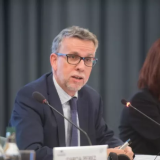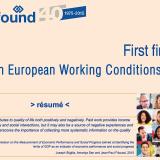European countries have a strong commitment towards improving working conditions. While much attention has focused on working conditions that have a negative impact on health and safety and well-being, conditions supportive of ‘good work’ and high job quality are also gaining in importance.
Working conditions and job quality are high on the European policy agenda. The Treaty on the Functioning of the European Union (TFEU) underlines as significant objectives the ‘promotion of employment, improved living and working conditions … proper social protection, dialogue between management and labour, the development of human resources with a view to lasting employment and the combating of exclusion’.
EU policy enshrines equal opportunities in the workplace for women and men, limits working hours, sets standards to ensure safety, and promotes investment in skills development. The European Commission and Member States have set up different processes to monitor progress and developments in relation to working conditions.
On 17 November 2017, the European Parliament, the Council and the European Commission formally proclaimed the European Pillar of Social Rights. One of the main principles of the pillar is to achieve fair working conditions. This covers secure and adaptable employment, wages, employment conditions and protection in case of dismissals, social dialogue and involvement of workers, work–life balance, as well as a healthy, safe and well-adapted work environment and data protection.
Adopted in June 2019, and as a direct follow up to the Pillar, the new Directive 2019/1152 on transparent and predictable working conditions sets out new minimum rights for all workers and new rules on the provision of information to workers about their working conditions.
Eurofound’s work on working conditions links in with the Commission’s 2019–2024 priority on a stronger Europe in the world.
European Industrial Relations Dictionary































